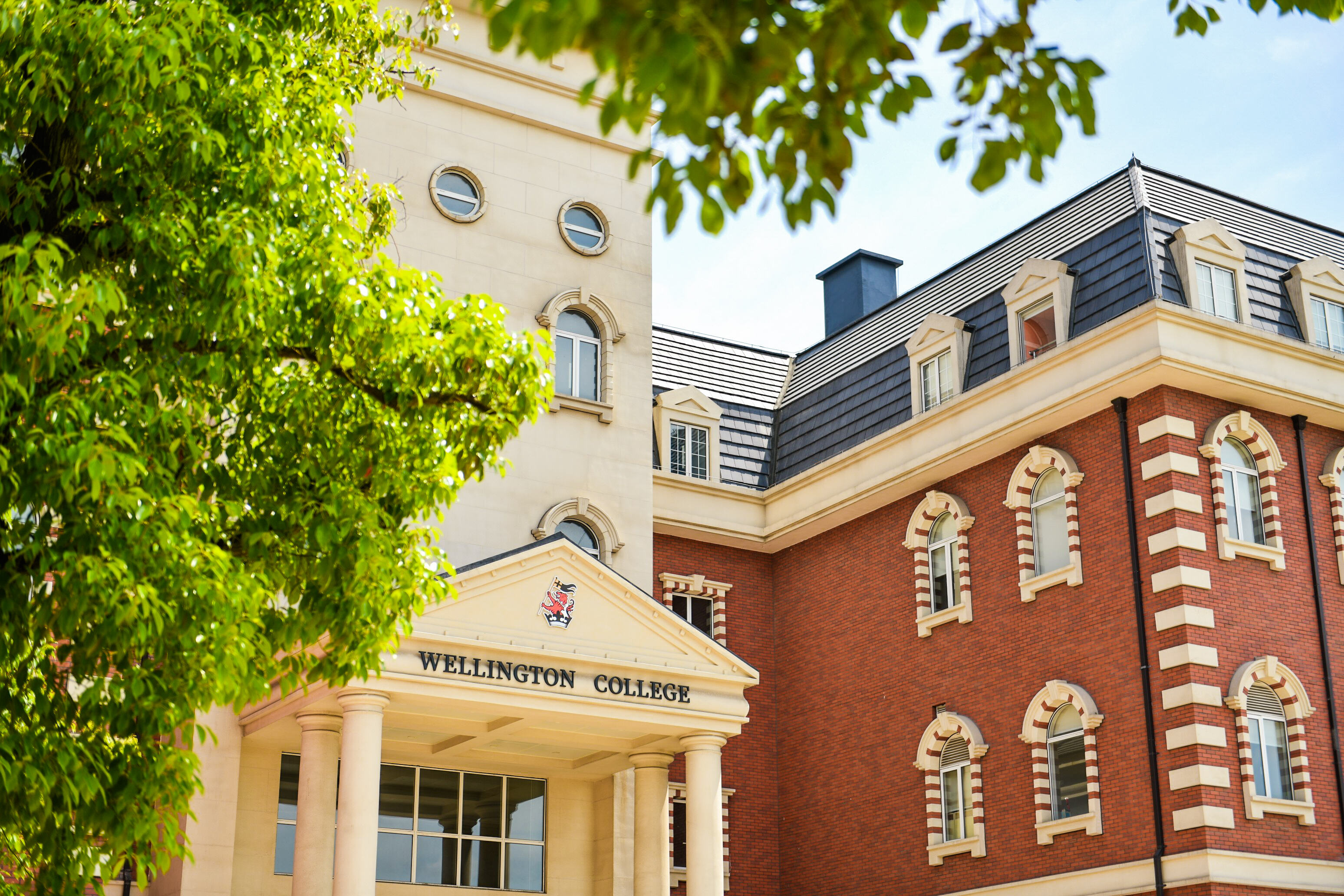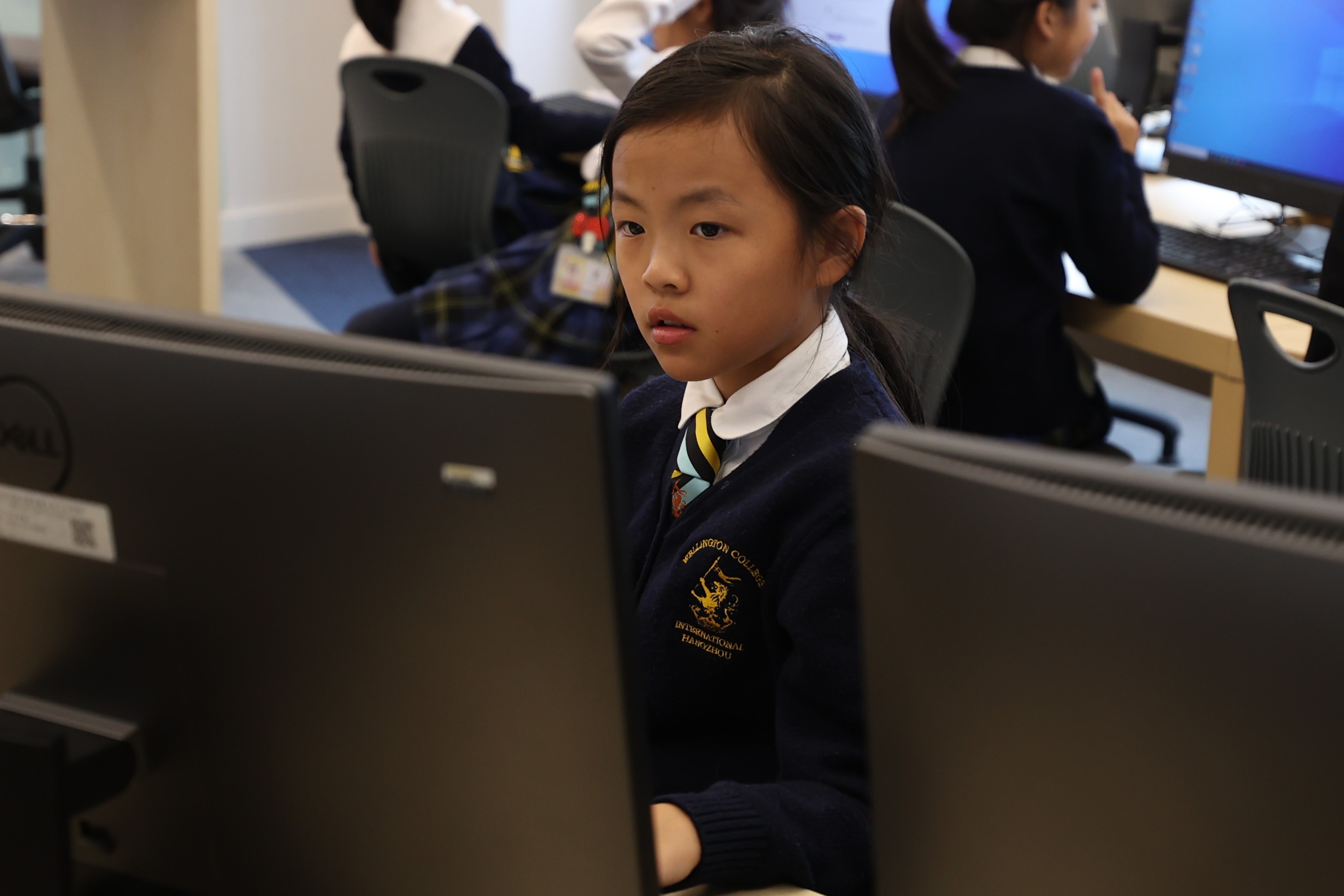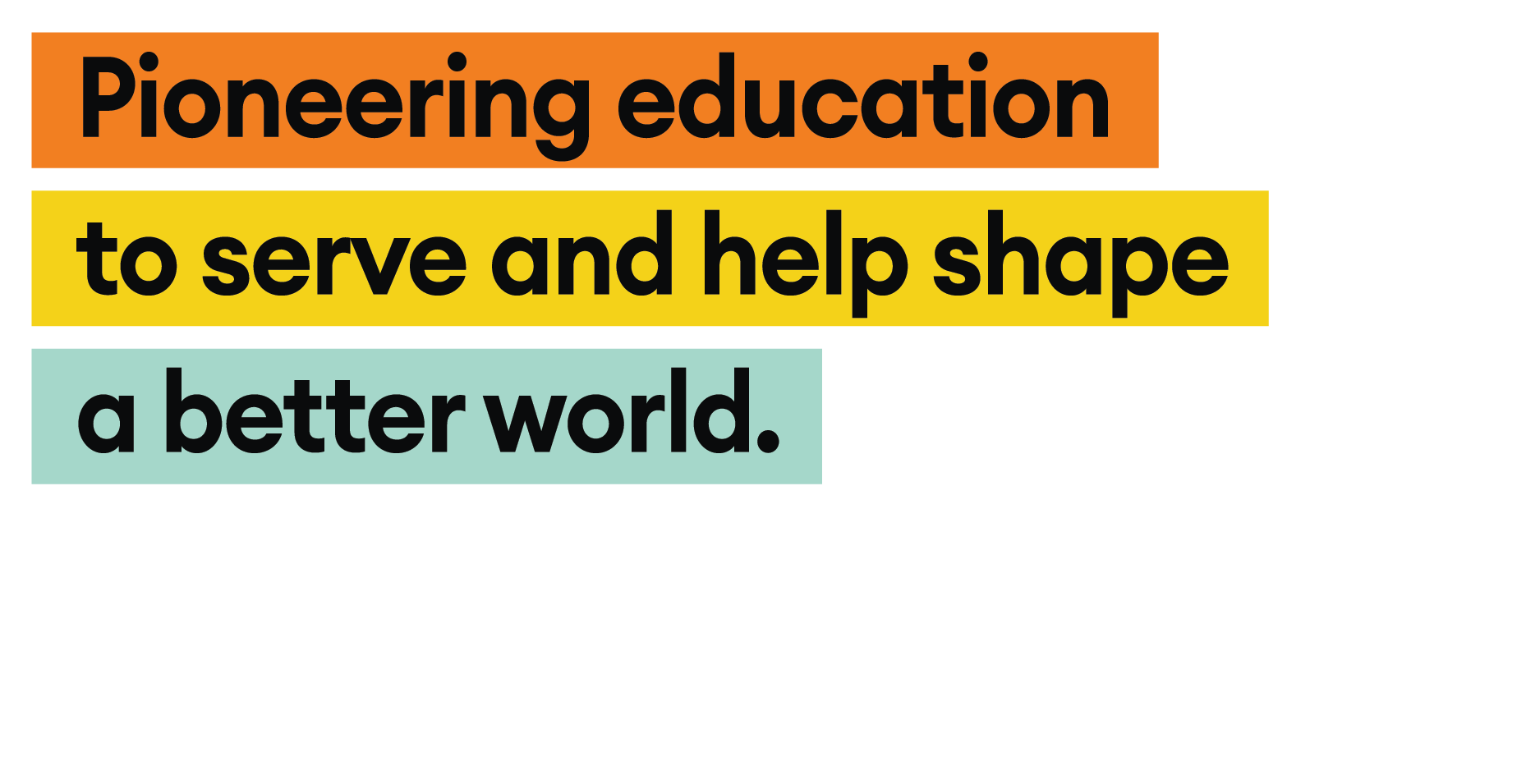The Week Ahead
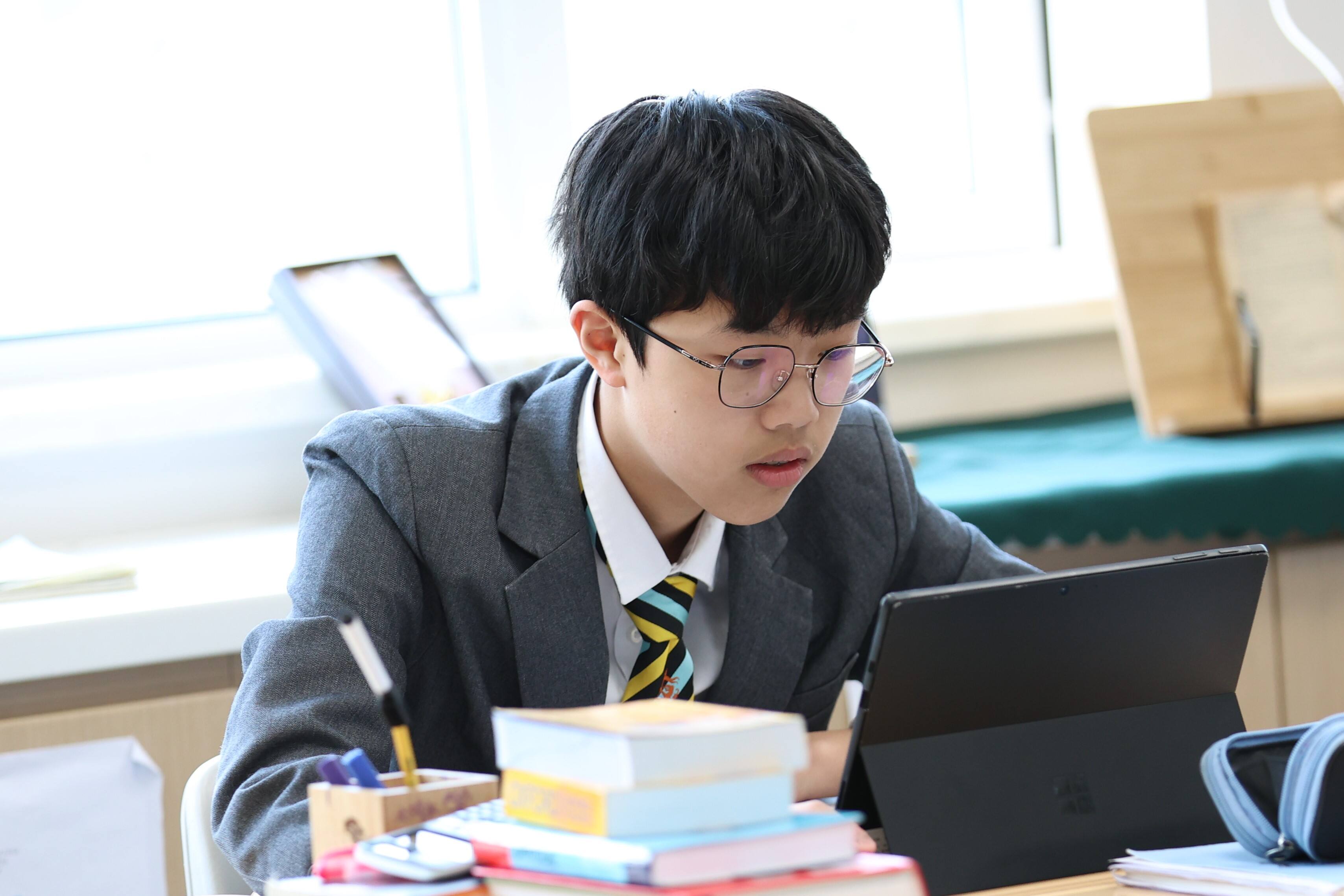
Senior School Matters
Networks and Relationships
Earlier this week, I was contacted by an ex-student from my London teaching days prior to 2007, who is now taking his first steps into international teaching in Dubai later this year. I was his form tutor at a school in South London, and we got back in touch with each other a few years ago when he trained as a Science teacher. So as well as being immensely proud that another pupil I had taught felt inspired to join the teaching profession, I was happy to help by connecting him with other great international Science teachers to network with.
This situation caused me to reflect once again on the importance of relationships. Every teacher and pupil relationship, plus the relationships within groups of children or between the school and parents, is vital to ensure that your children are supported, encouraged and empowered to achieve academic excellence. Whilst the current restrictions on events leave us all yearning for opportunities to connect and re-engage with wider aspects of school life and our community, we have been planning a truly exceptional programme of events, captivating parent workshops, teacher conferences and family development sessions to reunite our community next year, details of which to follow in August.
I have also reflected upon the wonderful networking opportunities that being part of an international and diverse cohort presents for our pupils. Pupils leaving the school this year will remain in contact with their friends and peers at Wellington College International Hangzhou, wherever their next destination lies. This proves that the friendships forged with peers during their time with us can stretch across the continents and last them a lifetime. So the network that our pupils will have in place when they take their first steps into university is already global, internationally-minded and representative of our proud Wellington values and identities – perfect for life in the future connected world. And who knows, perhaps one or two of our current pupil cohort will also head into teaching themselves. I tell anyone who will listen that being a teacher and working with children is the best job in the world.
Stewart Brown
Head of Senior School
Sixth Form Matters
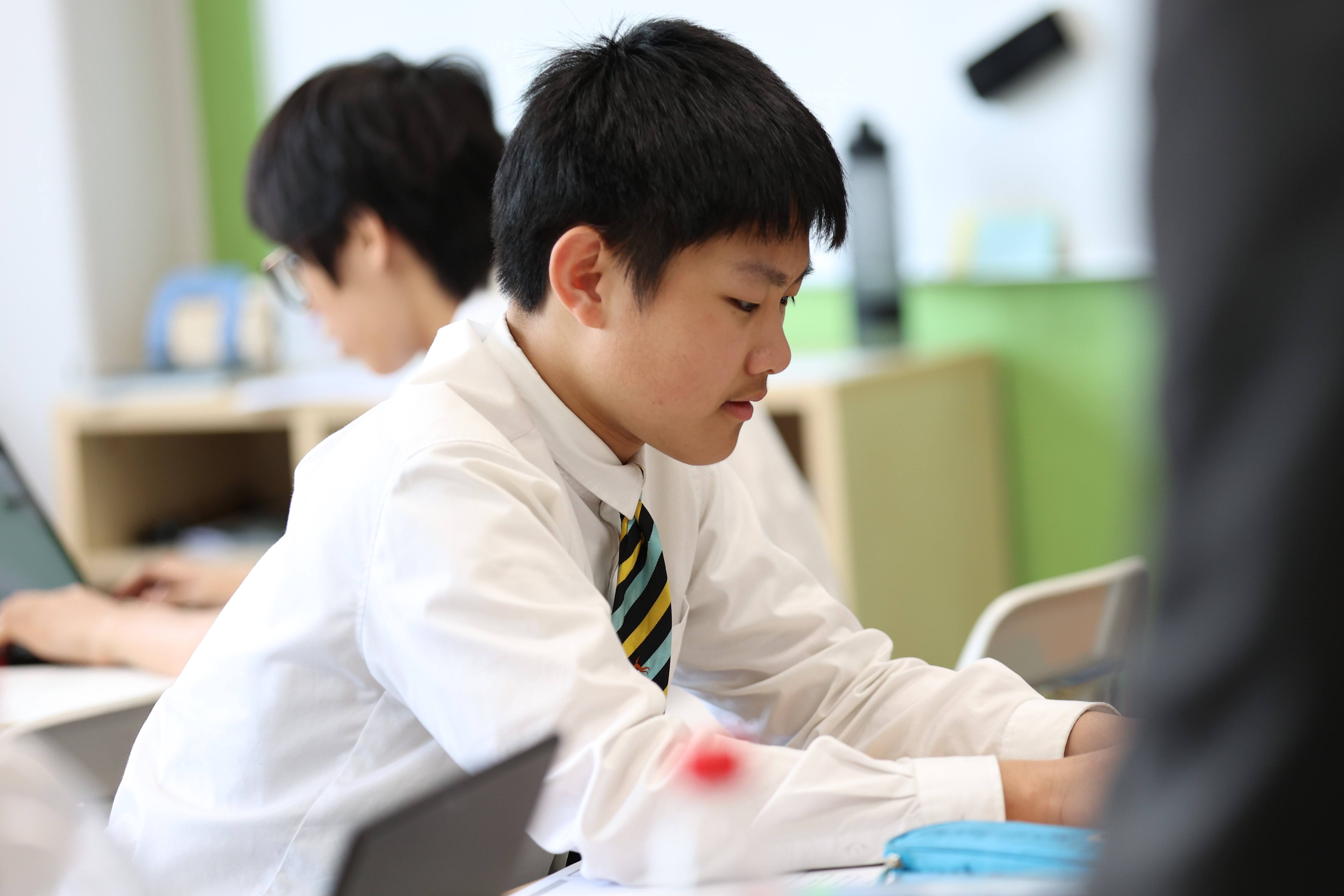
Motivation plays a significant role in how pupils learn and perform in school. However, failing to understand what motivates students and not engaging them properly can have the opposite effect. Therefore, it’s important to realise that motivation is a complex concept. Psychologists identify two different kinds: extrinsic and intrinsic motivation.
What is intrinsic motivation in pupils?
Intrinsic motivation is when individuals are driven to learn simply because they love learning. This may be because they enjoy the subject, are curious, or love the academic challenge. For some learners, if they are asked for their reasons for their interests, they may not be able to answer anything further than "just because". These pupils are internally motivated.
What is extrinsic motivation in pupils?
Extrinsic motivation depends on external factors. It's doing something to gain a reward or avoid adverse outcomes. This might be for House points, a good grade, a stronger university application, or to avoid punishment. The pupils are going through the motions of learning for reasons other than because they want to satisfy their curiosity.
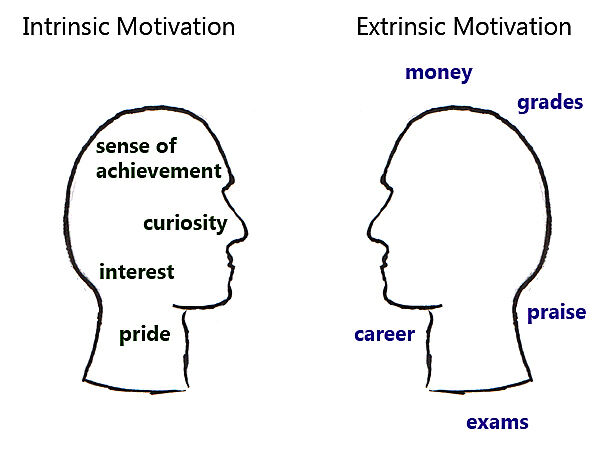
In an ideal world, we would want all our learners to be intrinsically motivated, but this is not realistic as not everyone will have the same level of interest across all their subjects. Sometimes pupils feel a combination of intrinsic and extrinsic motivating factors. However, as pupils grow older and become more aware of their academic preferences, we hope that they shift towards being intrinsically motivated.
Here are some ways to help develop intrinsic motivation in your child(ren):
Increase your child’s value by making self-advocacy an expectation
Help them experience both success and failure so that they learn to take healthy risks to get what they need to be successful.
Expect self-discipline
If your child needs bribery for simple tasks such as getting out of bed, then giving them these rewards will only make them expect them in future. They will only develop self-discipline when given the opportunities to do so.
Show what hard work can do for you
Pupils who lack intrinsic motivation do not see or experience the negative impact their mindset has on their future. Helping your child see the input required to pursue the path they desire will help give them direction and inspiration.
The greatest gift we can give our children is the ability to thrive without us, and intrinsic motivation is the fuel that will allow it to happen!
Upcoming Events

University of Oxford
Webinars for students
Writing your personal statement
[Students only]
Book here
We are running an additional webinar series on Wednesday 25 May (various times). This "Writing your personal statement" webinar will be interactive and is designed to help students with what makes an excellent personal statement, the role of super and extra-curricular activities, and what tutors look for. It will feature staff from the International Student Recruitment team and a current international student.
Live sessions for students will resume in September and will focus on the admissions test and interview preparation.

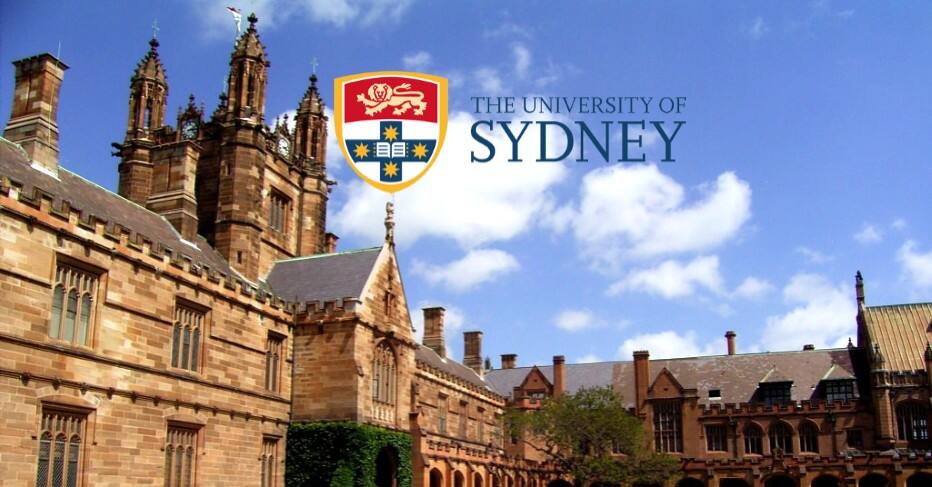
Undergraduate Taster Series
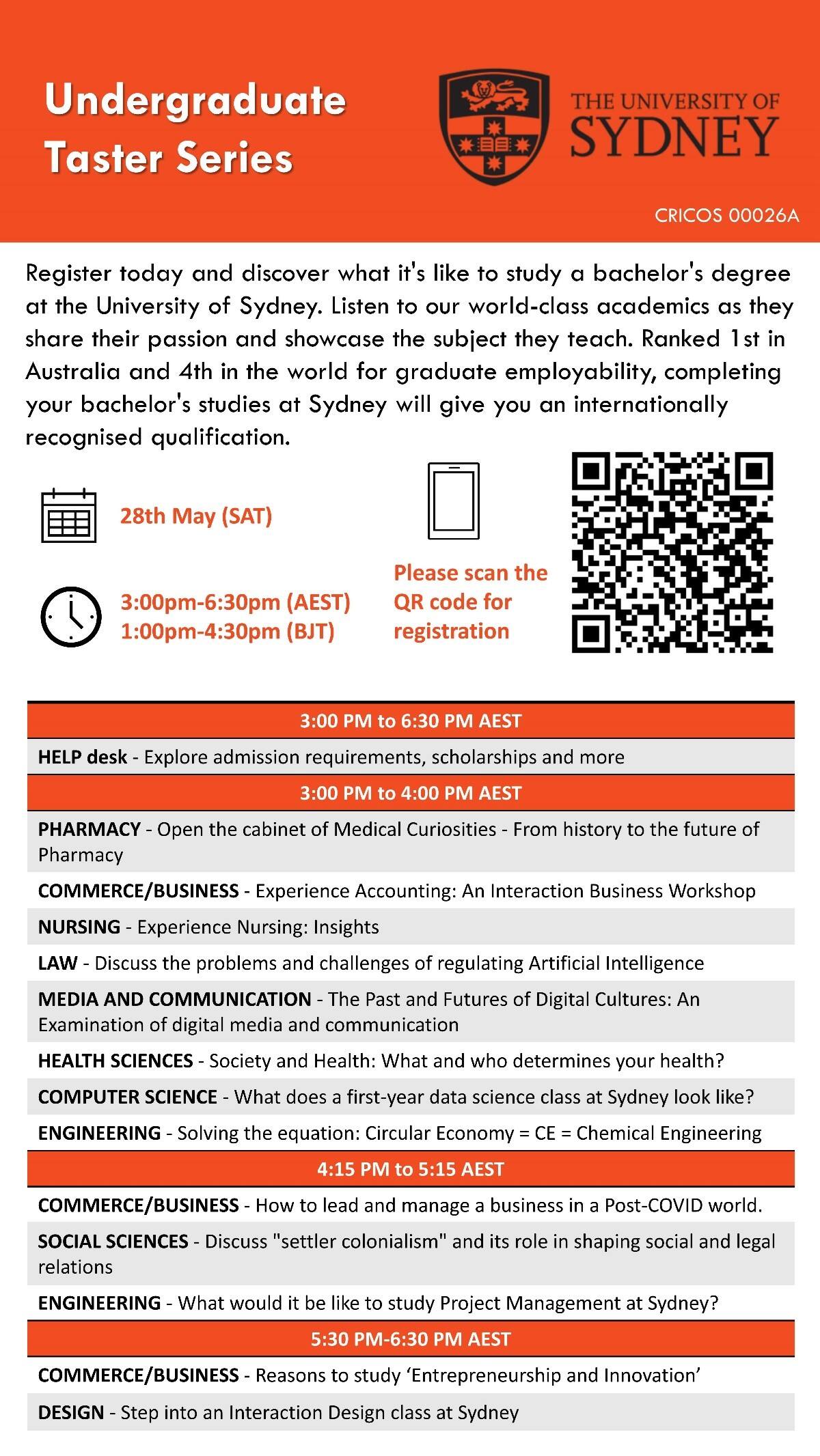
Virtual Creative Workshops

Our international team and creative tutors will be hosting a series of virtual creative workshops in 2022. These interactive and engaging sessions will include practical workshops and art demonstrations to inspire you and a chance to ask questions or gain feedback on your artwork. Open to all, they are aimed at students, educators, and anyone interested in developing their creative skills.
To join one of the 2022 workshops, click the links below to learn more and register.
How to Build Your Winning Portfolio
-
Sarah Charles
-
8 June 2022
-
10.00am
-
sign up here
Colour – Your Personal Voice
-
Professor Xavier Pick
-
6 July 2022
-
10.00am
-
Sign up here
The Magical Banyan Book Tree
-
Professor Xavier Pick
-
3 August 2022
-
10.00am
-
Sign up here
Hatty Leung
Head of Sixth Form
Primary School Matters
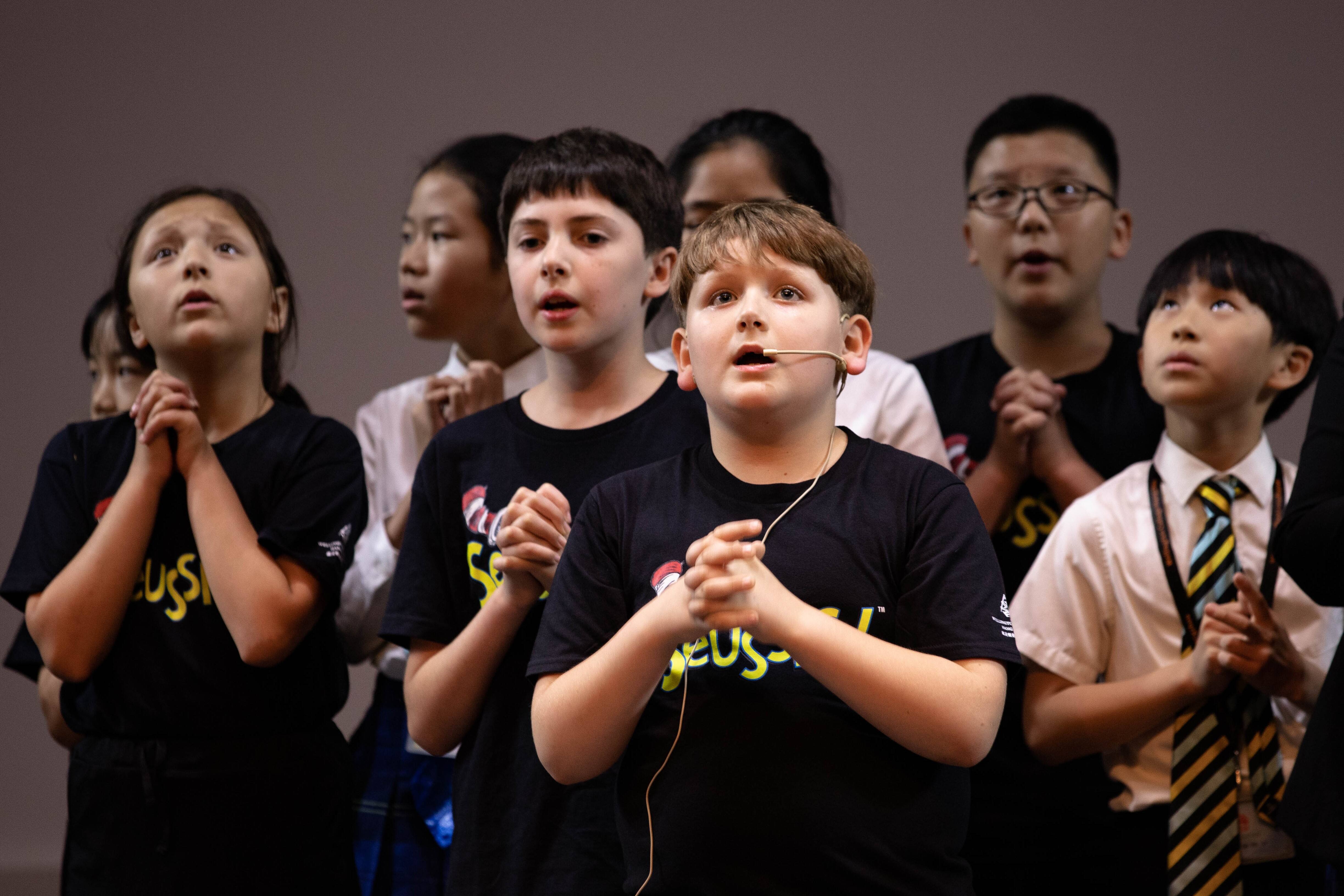
As we move towards the end of the academic year, we have our wonderful whole campus musical to look forward to. This year our pupils will be performing Seussical Jr. The Musical.
It is easy to forget that drawing, music, and dancing are ancient forms of expression. They were present in our earliest communities, even when, as a species, we had almost no margin for error. New studies reveal that the arts may prime our neural circuitry for a broader range of activities, boosting crucial cognitive and social functions like focus, spoken and written language, self-control, and empathy.
A high-quality 2019 study tracked over 10,000 students as they danced, performed in plays, or participated in music and visual arts programs. In addition to performing better on writing tests, researchers concluded they were better behaved, had great compassion for others, and were more engaged in school. The idea that the arts are merely extracurriculars, while deeply ingrained, is not the case. The research shows that the arts are powerful tools for making sense of the world, not so different from mathematics or the written word.
We wish all of our pupils and dedicated staff the best of luck as they head into their final month of rehearsals and preparations.
Matthew Coleman
Head of Primary School
Performing Arts Matters
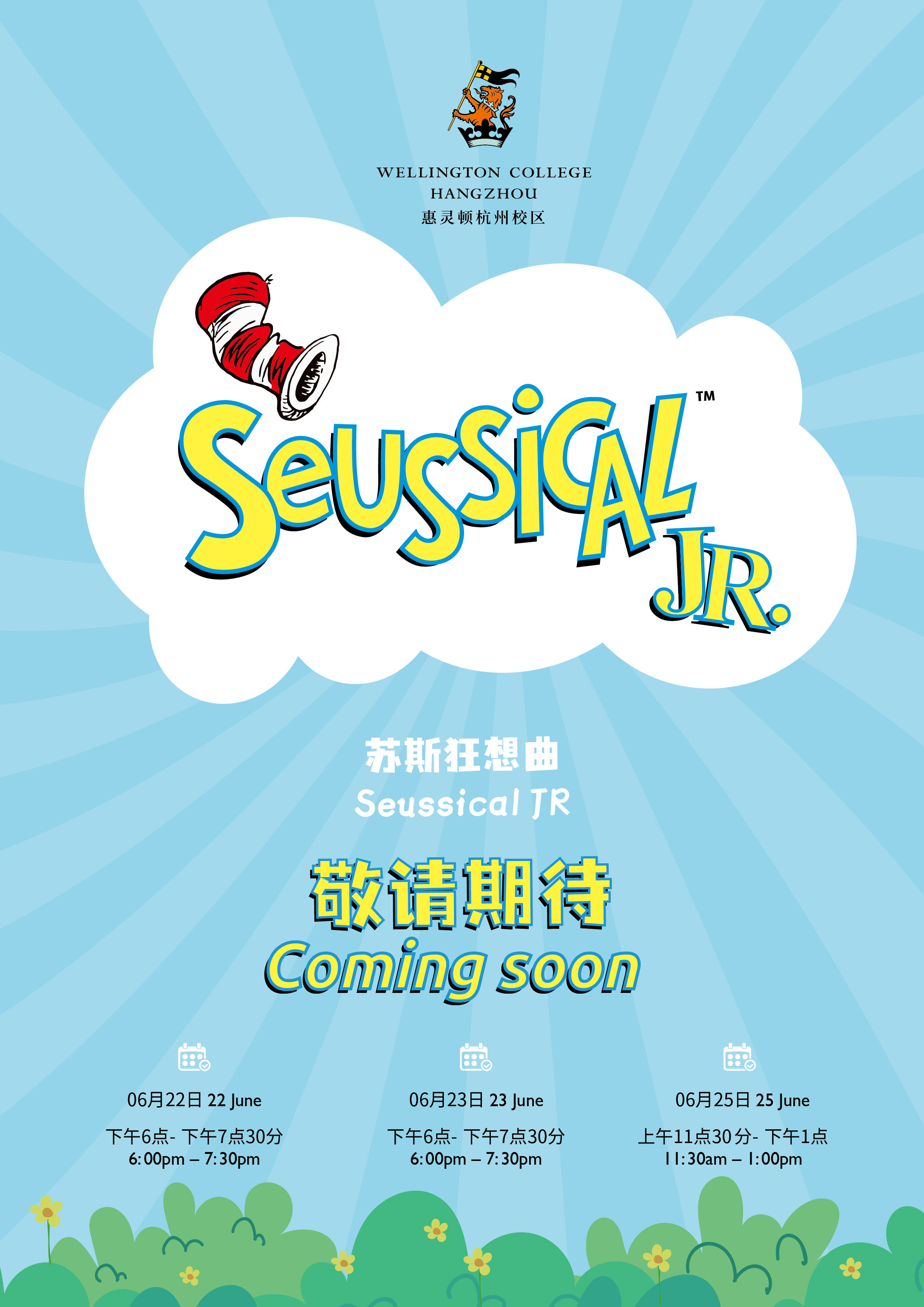
Our musical production is just around the corner. Seussical Jr. The Musical promises to be an unforgettable experience for our pupils and audience.
The cast has been working hard to meet the requirements of this outstanding production. We interviewed some of our main characters.
Meet one of the cast from Wellington College International Hangzhou – Seussical Jr. The Musical.

Daniel
The Cat in the Hat
Year 8
I was enigmatic when I found out that I was the Cat in the Hat. Drama is a great passion of mine. I enjoy participating in the musical because I get to do something I love and work with people who share the same feeling. I find memorising the choreography a challenge. The way I deal with it is lots and lots of practice. When I act, I feel like I am where I am meant to be. The way I feel when I am on stage is fantastic, and I would never give it up.
Alejandro Montoya
Director of Performing Arts
Sport Matters

Recently, 13 swimmers of Wellington College Education (China) - Hangzhou participated in FOBISIA Virtual Swimming 2022. It is the first time the school has competed as a representative swimming team. FOBISIA Virtual Swimming 2022 consists of 48 schools from 10 different Asian countries, with 728 Male / 627 Female swimmers participating. Performance swimming squad swimmer Emily X achieved first place in the (10YRS) 100 freestyle, sixth place in the(10YRS) 50 freestyle, Alina W earned a tenth place in (15YRS) 50 Fly, twelfth in (15YRS) 50 Back. Wellington College International Hangzhou is proud of these achievements and plans to be selected for the development squad swimmer in preparation for next season’s swimming and synchronised swimming competitions.
Young Chen
Head of Swimming
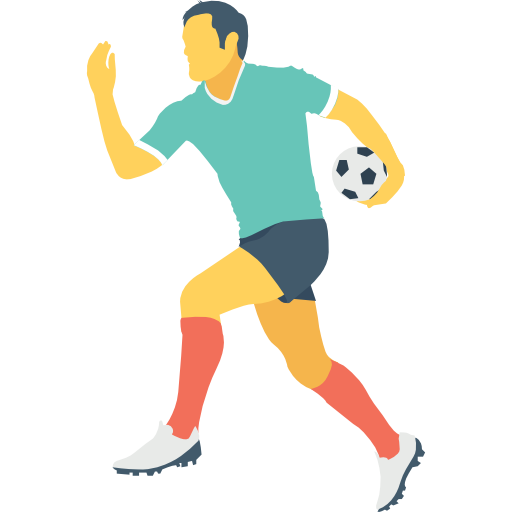
This week the senior school pupils have been playing handball. We believe handball is an excellent sport for all pupils to play because it provides a full-body workout. Apart from the aerobic benefit, the fast-paced handball game helps build up muscle tone and strength. The jumping, turning and slamming means most muscles are getting a vigorous workout. It increases cardiovascular endurance. The court is 40 metres long and 20 metres wide so that players can run a long way in a game.
-
It helps increase the heart rate and boost aerobic endurance.
-
It also develops agility of hands and feet, with sudden changes of pace and direction required. Improves mental focus and self-confidence.
-
Being successful is 95% mental and 5% physical. Handball requires players to have the conditioning and game strategy, stay calm under pressure, and keep focused on the right things, just like schoolwork.
-
Finally, it develops hand-eye coordination. Learning to anticipate where the ball will end up is not easy. Timing and technique are crucial.

We want our pupils to believe in themselves and have the self-confidence to play their own game rather than their opponent’s when under pressure. Handball can be played for a lifetime, which is precisely the goal of our curriculum, to promote a lifetime love of being active.
Timothy Schulze
Head of PE
Dukebox Matters

Dukebox radio
Schedule
Catch Up
Podcast
Martin Bailey
Dukebox Presenter
Related Articles


_1652321505002.jpg?x-oss-process=image/interlace,1/resize,m_lfit,w_1200/quality,q_90/format,webp)








